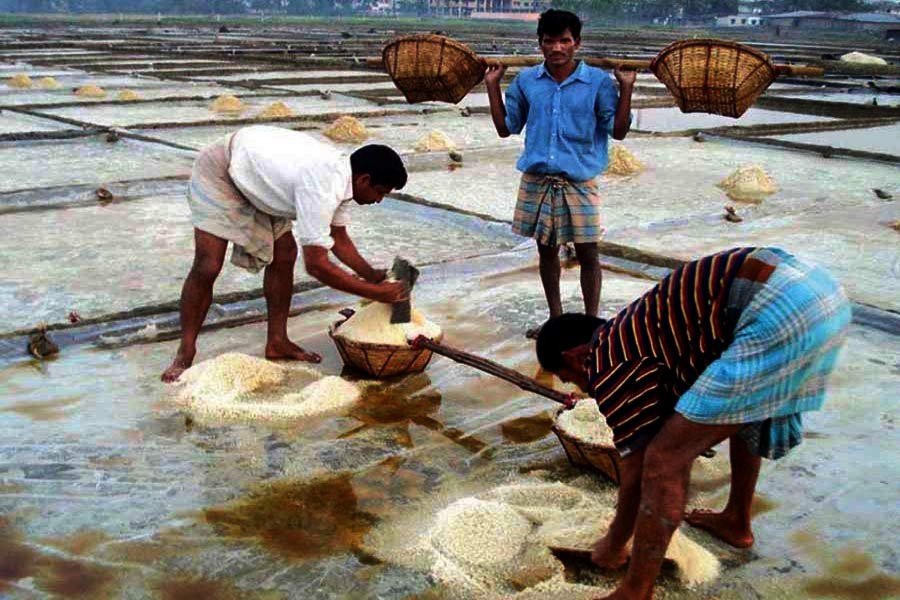If the news that salt production in the country this year has fallen short of target is disquieting, subsequent development surrounding marketing of the item may be even more disquieting in the months to come. Production season of this daily essential has come to an end and business manoeuvring and manipulation are likely to decide how the salt market will behave. The fiscal year (FY), 2013-14, was the only exception when the output surpassed the target by a margin of 0.15 million tonnes with the target set at 1.6 million tonnes. During most other recent years, the target was set at 1.8 million tonnes and it was never achieved. Evidently, the highest production of FY 2013-14 would also have fallen short by a small margin if the target was fixed at that amount. Setting target for production of the item is important but more important is to maintain that local production meets the national requirement.
The ambivalence in production and import of salt at times proves irresolvable because of the conflicting interests of salt farmers and importers. Millers who refine crude salt usually have nothing to lose unless the importers go for an overkill. This is quite possible if strong political links and the government's hanker after populism find a common ground. In the process, farmers suffer the losses as they do in case of production of a wide range of agricultural produces including the staple. One thing is decidedly against farmers producing salt here. Their production cost is higher than it is in countries from where the commodity is imported. On that count, importers and traders dealing in salt enjoy an edge over producers and millers. So it is incumbent on the government to protect the interests of both salt growers and consumers.
In fact, the history of salt in this part of the world is otherwise highly politically charged, entailing human misery as well. A repeat of that sad chapter is most likely impossible in this digital era. But some of its worse features can resurface with the connivance of millers and importers. The government has to be on guard. The good news is that taking advantage of the lifting of the ban on import of salt, millers-cum-importers have already imported 0.5 million tonnes. Since the country's production of 1.49 million tonnes will fall short of the requirement for 1.62 million tonnes, there will be need for more import of the item.
However, when import is allowed, there is no guarantee that a balance will be struck between production and import in order to keep the market stable. If millers and importers are the same or birds of the same feathers, they know how to manipulate the market. The government here has the responsibility to respond well in time so that the instability in the market does not seriously affect common people. What happened in case of rice production and import last year should serve as an eye-opener. Farmers' interests have to be protected but at the same time modernisation of the production system will be required to lower the production cost aimed at making it competitive.


